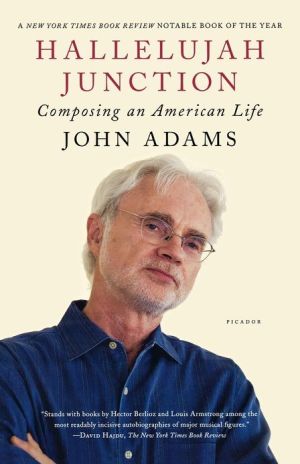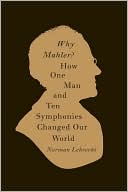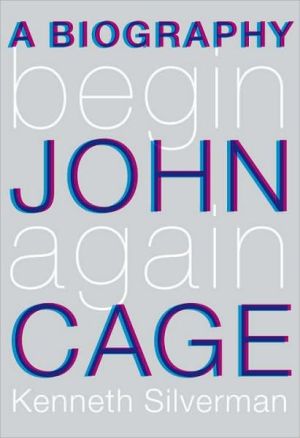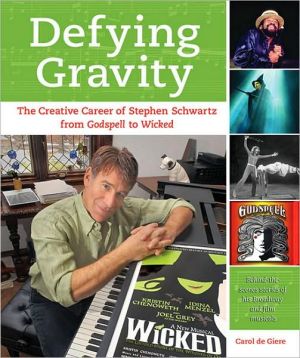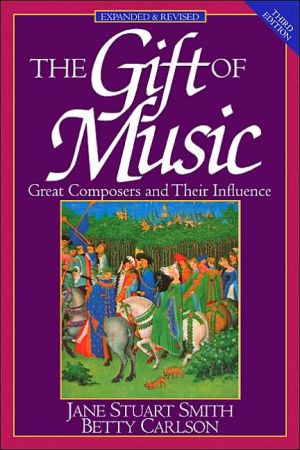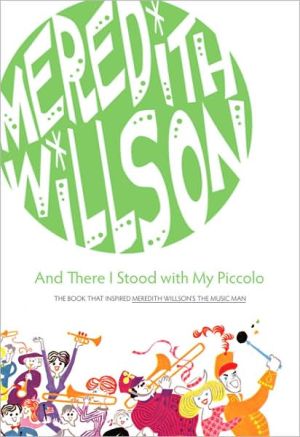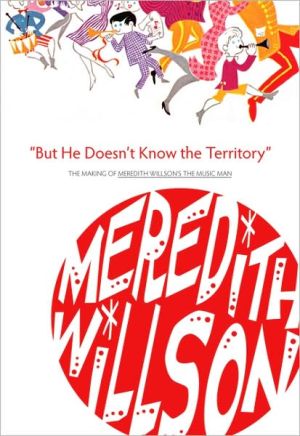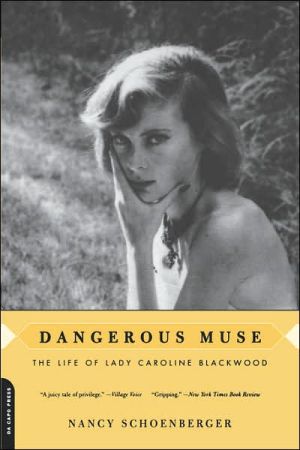Hallelujah Junction: Composing an American Life
A New York Times Notable Book of the Year A San Francisco Chronicle Notable Bay Area Book of the Year A book unlike anything ever written by a composer—part memoir, part description and explication of the creative process—Hallelujah Junction is an absorbing journey across the musical landscape of America and through the life and times of John Adams, one of today's most admired and performed composers.
Search in google:
John Adams is one of the most respected and loved of contemporary composers, and he has won his eminence fair and square: he has aimed high, he has addressed life as it is lived now, and he has found a language that makes sense to a wide audience (Alex Ross, The New Yorker). Now, in Hallelujah Junction, he incisively relates his life story, from his childhood to his early studies in classical composition amid the musical and social ferment of the 1960s, from his landmark minimalist innovations to his controversial docu-operas. Adams offers a no-holds-barred portrait of the rich musical scene of 1970s California, and of his contemporaries and colleagues, including John Cage, Steve Reich, and Philip Glass. He describes the process of writing, rehearsing, and performing his renowned works, as well as both the pleasures and the challenges of writing serious music in a country and time largely preoccupied with pop culture. Hallelujah Junction is a thoughtful and original memoir that will appeal to both longtime Adams fans and newcomers to contemporary music. Not since Leonard Bernstein s Findings has an eminent composer so candidly and accessibly explored his life and work. This searching self-portrait offers not only a glimpse into the work and world of one of our leading artists, but also an intimate look at one of the most exciting chapters in contemporary culture. The New York Times - Charles McGrath …[an] absorbing book…[Adams's] autobiography talks movingly, and sometimes quite funnily, about being depressed, solitary and creatively blocked before he found a way out of aimlessness and self-doubt. He brings to the book the Wagnerian "sincerity" he so admired, but without Wagnerian self-importance. Mr. Adams writes so well that it's a little dismaying for someone who clings to the notion that writing, like composing, is a calling developed over years, and not a hobby picked up in middle age. It's a relief to see him (or his copy editor) let a few amateurisms slip by. And as good as his prose is, you wish the book could have come wired with a soundtrack illustrating his points and sampling some of his hits.
1 Winnipesaukee Gardens 32 From Help! to "Let it Be" 283 Free Radicals 474 Regal Apparel 625 Faulty Wiring 806 A Harmony Lesson 1007 The People are the Heroes Now 1258 Singing Terrorists 1459 Mongrel Airs 17110 The Machine in the Garden 19411 Technical Difficulties 21012 How Could This Happen? 23713 A Swirl of Atoms 26814 Tree of Life 29415 Garage Sale of The Mind 311Suggested Listening and Viewing 321Acknowledgments 325Index 327
\ From the Publisher"No book I know of better captures the thrill of a moment of artistic freedom and innovation. . . . This is a book that any aspiring artist, in any medium, should read as a kind of how-to guide to achieving artistic success without losing integrity. . . . A book for anyone who wants to create something—including a self."—David Rollow, The Boston Globe "How Mr. Adams arrived at this particular harmonic language is largely the subject of his absorbing book, which at times reads like a quest narrative that travels through the whole landscape of twentieth-century music."—Chip McGrath, The New York Times "A lively, witty prose writer. . . . It's the range of Adams's musical appetites and intellectual hunger that leaves the strongest impression. This is a man who swallows whole new worlds with every fresh project he takes on—and makes his discoveries new for the rest of us."—Michael Upchurch, The Seattle Times "Engrossing . . . Like his music, Adams's voice in Hallelujah Junction is both playful and thoughtful, unafraid of making big emotional statements but obsessed with making sure those statements are precisely crafted. . . . An original and inspired book."—Wynne Delacoma, Chicago Sun-Times "John Adams is the voice of America . . . thoughtful, amusing, analytical—and a good writer. . . . To read something so intelligent, reasoned, and caring sure feels good these days."—Mark Swed, Los Angeles Times\ "Thoughtful, amusing, analytical . . . John Adams is the voice of America."—Mark Swede, Los Angeles Times "Hallelujah Junction stands . . . among the most readably incisive autobiographies of major musical figures."—David Hajdu, The New York Times Book Review\ \ \ \ \ \ David HajduThis book, Adams's first (and, let's hope, not his last), is a cogent account of its author's escape from the world of audience-alienating "process" music absorbed with its own making and his arrival at a place where intellectual adventurism and robust emotion coexist—a pilgrimage from the Land Without Feelings to Hallelujah Junction…Although the sojourner scheme is a cliche among books by creative artists, politicians and pretty much everyone else, Adams plays it lightly. There is no more self-aggrandizement in this wry, smart and forthright memoir than there is in the venturesome but elegiac music of Adams's maturity. Indeed, Hallelujah Junction stands with books by Hector Berlioz and Louis Armstrong among the most readably incisive autobiographies of major musical figures.\ —The New York Times Book Review\ \ \ Charles McGrath…[an] absorbing book…[Adams's] autobiography talks movingly, and sometimes quite funnily, about being depressed, solitary and creatively blocked before he found a way out of aimlessness and self-doubt. He brings to the book the Wagnerian "sincerity" he so admired, but without Wagnerian self-importance. Mr. Adams writes so well that it's a little dismaying for someone who clings to the notion that writing, like composing, is a calling developed over years, and not a hobby picked up in middle age. It's a relief to see him (or his copy editor) let a few amateurisms slip by. And as good as his prose is, you wish the book could have come wired with a soundtrack illustrating his points and sampling some of his hits.\ —The New York Times\ \ \ \ \ Publishers WeeklyBest known for his groundbreaking musical works Nixon in China and The Death of Klinghoffer, Adams helped shape the landscape of contemporary classical music. Combining the narrative power of opera, the atonal themes of 20th-century classical music, the spooky modulations of jazz and the complex rhythms of the Beatles and the Band, Adams created a new music that could express the fractiousness of the political scene of the 1960s and 1970s. In this entertaining memoir, Adams deftly chronicles his life and times, providing along the way an incisive exploration of the creative process. A precocious musician, Adams began playing clarinet in the third grade, and, after hearing his teacher read Mozart's biography, tried his hand at composing music. During his undergraduate years at Harvard, he threw himself into performing and conducting when his own inadequacies as a composer began to dawn on him. By his final year at Harvard, however, the chaos of the late 1960s and the creative turbulence of the music scene drove him back to composing. After two years in graduate school, Adams set out for California, where he taught numerous composition classes and private clarinet lessons while working on his own music and with a who's who of the music world, from Cage and Leonard Bernstein to Philip Glass and Steve Reich. Adams's searingly introspective autobiography reveals the workings of a brilliant musical mind responsible for some of contemporary America's most inventive and original music. (Oct.)\ Copyright © Reed Business Information, a division of Reed Elsevier Inc. All rights reserved.\ \ \ \ \ Library JournalCelebrated American composer and conductor Adams's memoir chronicles his life from his upbringing as a talented clarinetist in rural New England to his countercultural coming-of-age as a Harvard undergraduate in the 1960s to his embrace of the musical life and vibrant scene of the Bay Area. Adams writes candidly of his compositions and those of his contemporaries in language accessible to the lay reader. Adams-through his engaging orchestral works, such as the Pulitzer Prize-winning On the Transmigration of Souls and his several landmark "docu-operas" like Nixon in China and Doctor Atomic (opening at the New York Metropolitan Opera this October)-has emerged as one of the most admired of all living composers. His book proceeds chronologically, but Adams frequently pauses to reflect on the nature of composing and the state of contemporary music. As one of the most inclusive of contemporary composers-his palette covers pop, jazz, and myriad global idioms-he shares his unique perspective on the multiple traditions that inform his musical language. Adams writes articulately about his life and works and the larger social context from which they emerge. Highly recommended for all collections.-Larry Lipkis, Moravian Coll., Bethlehem, PA\ \ \ \ \ \ Kirkus ReviewsColorful memoir of both success and failure by Pulitzer Prize-winning composer Adams. As a boy in 1950s New Hampshire, the author played the clarinet and dreamed of becoming a great composer. He didn't realize until it was too late that he would have been better off learning the piano: "I have had to live with only the most rudimentary, self-taught mode of hunt-and-peck [but] I suspect my lifelong frustrations with the piano go hand in hand with the birth of many of my best musical ideas." The book is at its richest when the author recollects his encounters with other composers, especially during his formative years at Harvard during the '60s. He's not necessarily critical of his musical peers and heroes, but rather portrays himself as a fellow traveler in search of his own unique voice. Adams's professed love for popular music and his extreme reservations about the rigidity of the compositional methods associated with serialism that were dominant in the '60s reveal the complexity of a musical era too often stereotyped as monolithically academic. Equally insightful are self-critical passages in which the author details his discovery of personal limitations and sections that delineate his ambivalence toward some transitory compositional fashions and styles, particularly in San Francisco during the '70s and '80s. Adams lucidly and honestly records his reactions to the public reception of his operas Nixon in China, The Death of Klinghoffer and the recent Doctor Atomic, providing indispensible background for a more complete appreciation of these works. Occasionally, he lapses into self-righteous-or at least self-indulgent-solipsism, and his explications of music history are dry and seeminglyirrelevant. But readers will enjoy the candor and completeness of the book, which serves as a gateway to an accomplished body of work. Like the author's music: carefully considered, deliberate and often exciting, gathering together many disparate elements of American life.\ \
